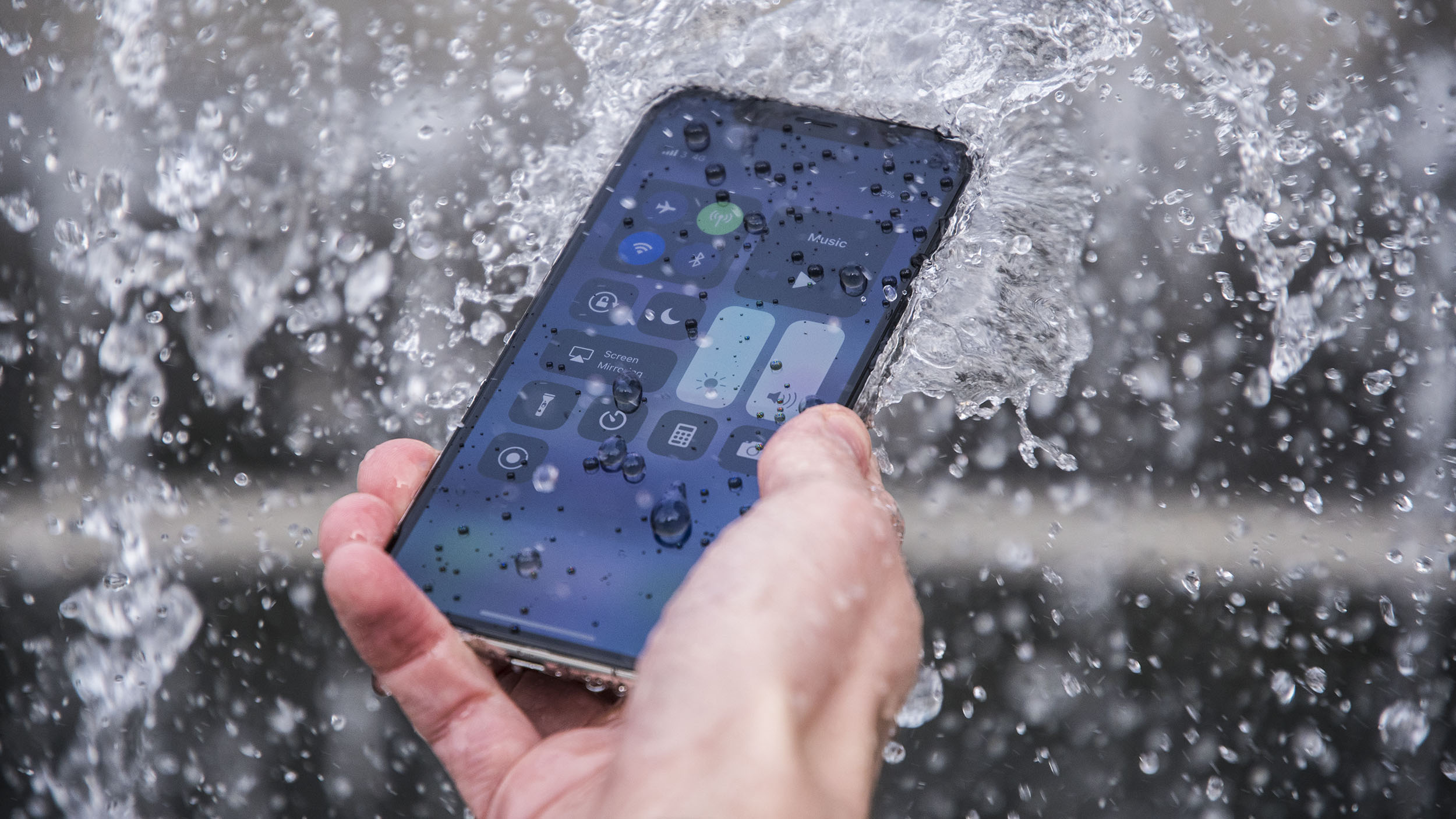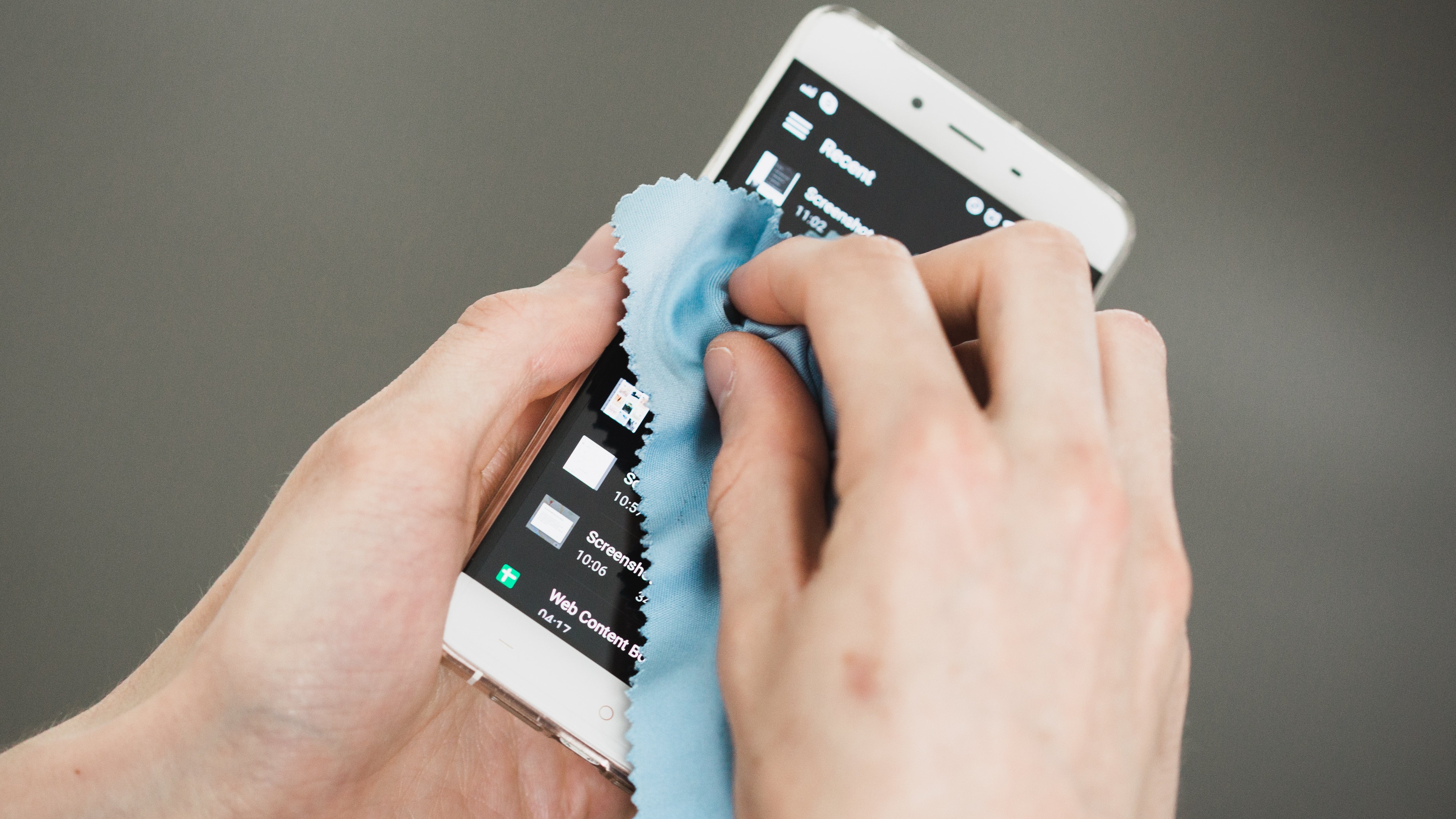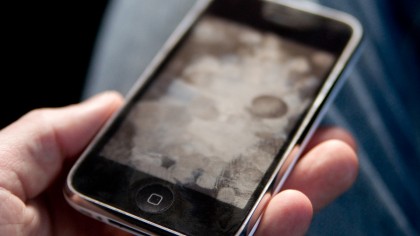How to clean your phone effectively and safely
Protect yourself from Covid-19

There are three common strands of advice for minimizing the spread of Coronavirus, issued by bodies like the NHS and the WHO. If you have to sneeze, do it into a tissue or your sleeve. Avoid contact with unwell people, and wash your hands with soap, often.
Your phone complicates that last one. Sanitize your hands all you like, bacteria and viruses sitting on your phone may be transferred right back to those hands as soon as you check WhatsApp or Instagram.
Few of us clean our phones regularly, and we probably should have done before now.
- How to clean your iPad or tablet
- How to clean your laptop screen
- How to clean your controller and more
- How to clean a TV screen
- How to clean AirPods
A 2011 study by the London School of Hygiene & Tropical Medicine found one in six phones analysed showed traces of fecal matter. And you want your mobile to be free of nasties like Staphylococcus aureus and Acinetobacter spp. as well as Covid-19.
A professor who studies infectious disease told TechRadar, “Good hygiene and disinfecting regularly touched items like doorhandles, surfaces and telephones are essential as it is very easy to transfer the virus onto your clean hands by touching something that someone with the virus has come into contact with or been in the vicinity of."
Cleaning methods

- But what should we use to clean our phones?
You can apply the same substances you use to clean your hands, but some are more suitable than others. The current best advice is to moisten a lint-free cloth, the kind you might use to clean a pair of glasses, add some soap and give your phone and its case a thorough wipe down.
- Soap and water are a highly effective team
“Water itself doesn’t inactivate or ‘kill’ viruses but simply washes them away,” says the professor we spoke to. “Soap is far superior because it contains fat-like substances. Viruses themselves are composed of genetic material, proteins and fats. When soap interacts with viruses the fat-like substances in the soap compete with the viral lipids and cause the virus to break down.”
Get daily insight, inspiration and deals in your inbox
Sign up for breaking news, reviews, opinion, top tech deals, and more.
- This is better than using one of the popular anti-bacterial hand gels
“Alcohol gels are different because instead they contain a high concentration of alcohol, ethanol, that kills viruses,” says the professor. “A bonus of soap however is that when you wash with water you can cover a large surface area. So the preference is always to be using soap and water where possible. If not, then alcohol gel with a good technique is also fine.”
Be careful if you wash your phone down with an alcohol-based solution, though. Wipes and gels with a very high concentration of alcohol can damage the oleophobic layer used to avoid obvious oily fingerprint smudges on your phone’s touchscreen.
Does your phone have a screen protector? Some higher-end models have their own oleophobic coatings, but that cheap three-pack you bought from Amazon or eBay is likely little more than a thin sheet of plastic with an adhesive side.
All smartphone makers also recommend avoiding cleaning solutions that contain bleach or abrasives, and the use of any rough cloths. These may spoil the finish of a phone’s metal sides and cause micro-abrasions in glass that will dull its surface. We’re out to clean the phone, not ruin it.
- UV virus-zapping
You can also go “high tech” if you want. Companies like PhoneSoap and Homedics make UV sanitizers for your phone. These are like little tanning beds that bathe them in ultraviolet light.
Even Samsung stores are now offering to sanitize your phone through a similar method for free in some locations.
“Sunlight also inactivates coronavirus, which is where the concept of UV-based cleaning kits has come from,” says the professor. “Just bear in mind that this approach will only slowly inactivate the virus over time whereas soap and disinfectants do this almost immediately.”
“There are also lots of other products on the market that claim to kill coronavirus but it is cheaper and easier to stick to good hygiene, hand-washing with soap and the use of disinfectant”
This is good news for your pocket. UV phone cleaners are much more expensive than a bar of soap or a bottle of handwash.

Water versus phones
We also advise, as ever, being careful with water around your phone.
The Samsung Galaxy S20, iPhone 11, Huawei Mate 30 Pro, and many others, have been tested for water resistance. These particular models have an IP68 rating, which means they are designed to withstand immersion in freshwater at a depth of 1.5m for 30 minutes.
However, most of us have at some point dropped our phones. And that may have compromised the little rubber gaskets that keep water out of a phone’s insides. Keep water away from your phone’s sockets. Liquid can also seep through cracks in the display glass of damaged screens and cause problems worse than those your phone already has.
Half-life
How long can a virus survive on your phone? Long enough for it not to be an excuse for mindful hygiene, particularly in the case of Covid-19.
“Some viruses can only survive for a very short period of time outside of the body because they are so dependent on nourishment or particular physiological conditions (e.g. HIV) whereas others can last longer,” says the professor.
"Research on the coronavirus suggests it can remain viable for up to four hours on copper, up to 24 hours on cardboard and up to 2-3 days on plastic and stainless steel. This is all impacted by the environment.”
If the coronavirus can survive for days on at least parts of your phone, now is a good time to start cleaning it regularly, as well as your hands. Concerned about where to get the most up-to-date health advice? Head to the relevant website of your country’s healthcare system. That’s NHS.uk in the UK, CDC.org in the US and health.gov.au in Australia.
So, what's the easiest way to clean your phone?
- Prepare a bowl of hot (but not boiling) soapy water. Don't use anything other than household soap as it may damage the coating on your phone.
- Bring your phone to the water, and be sure to take it out of its case. Then turn your phone off before you begin to clean it.
- Do not submerge your phone, unless it's IP68 water-resistant. Even then, we'd recommend not submerging your phone entirely.
- Take a cloth and moisten it using the soapy water.
- Gently rub the cloth around your phone ensuring you get to every area you can find. If you have a case, do the same for that.
- Ensure you don't allow the water to get into any of the openings of the phone such as the charging port or speaker grille.
- Then wipe your phone down again with a clean microfibre cloth.
- Leave your phone to dry out fully before turning it back on again. Repeat this method as much as you need to.
How do I keep my phone clean?
Your hands are the main way your phone will get dirty. If you keep your hands clean, you'll be keeping your phone clean as well.
The World Health Organization says you should wash your hands for 20 seconds at a time, so follow that advice and you should also ensure your phone is kept clean.
If you're concerned about your phone's cleanliness, you should repeat the steps above.
Andrew is a freelance journalist and has been writing and editing for some of the UK's top tech and lifestyle publications including TrustedReviews, Stuff, T3, TechRadar, Lifehacker and others.
